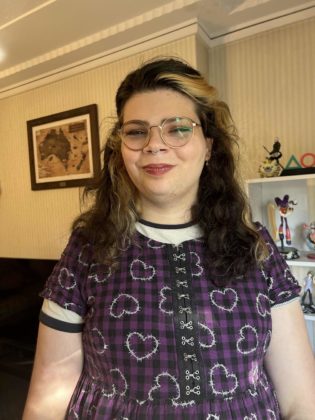We’ve had our fair share of video games exploring themes of mental illness in recent years. There’s ones that do well in the space, like BAFTA winning Hellblade: Senua’s Sacrifice and more recently Sea of Solitude. What I like about these games is that they each explore mental illness in different ways. I don’t have psychosis so while the experience of playing Hellblade was like no other, it didn’t ruminate super closely. That’s okay of course. I enjoy any light being brought to the troubles and trials of mental illness, but have never found any that made me go “That’s just like my experience. I can relate to this.” That’s where Fractured Minds comes in.
Fractured Minds is a simple game. It doesn’t have a story or named protagonist per se, but instead offers you six bite-sized chapters that are glimpses of what it’s like to live with anxiety. In chapter one, titled Mundane, you awake and are faced with a simple puzzle of finding a key to unlock a door in a bedroom. Seems simple enough, right?
Eventually, you find the key and attempt to use it on the door. Wrong one. You try another. Wrong again. Suddenly, you’re frantically searching cupboards and drawers trying to find the key that unlocks the door to freedom. All while doing so, the words ‘wrong key’ appear large and invasive on your screen with each unsuccessful attempt. It’s stressful, no doubt, but an experience not dissimilar to ones I’ve had before with my own anxiety and depression. Simple tasks at times become difficult, and when you’re not succeeding that ever present and loud negative self talk comes in your head not dissimilar to this section of Fractured Minds (and also this one in Bojack Horseman).

A meticulous and thoughtful project
It’s a better experience going in blind but I’d be remiss if I didn’t commend the game’s fourth chapter, Paranoia. It sees you in a city setting, with plenty a passerby coming at you. The scene is in greyscale and because of this, none of the pedestrians look any different than the other. As you’re solving the level’s puzzle (tracking down symbols that can be interpreted as almost literal targets on people’s backs), there’s little noise except for your character’s panicked breath and the occasional passing car. This once again was a powerful moment for me. It reminded me vividly of the times I’ve been in crowds and experienced panic attacks. I’d be conscious of people looking at me but in reality, people passing by could very well be anxious of the very same thing. A la, target on a back.
I could very well be interpreting this scene and others very wrong. I don’t know the developer’s intent (they were just 17 while working on the project, by the way), but that’s okay. Mental illness, whether it be Depression, Anxiety or any other condition alike, is never the same for everyone. There’s always going to be different experiences for each individual. It’s something I do my best to remind myself of regularly. I like that in knowing this, it has brought my own interpretation into what Fractured Minds is trying to tell.
Fractured Minds is a great idea for a great cause
In short, Fractured Minds is a game I can’t recommend enough. It’s refreshing that a game about mental illness is taking a more informative approach for once, honestly. I’m really excited with the idea of players that aren’t as familiar with mental illnesses picking this up and becoming educated. Buying this game means you’re contributing to a good cause too, as it was released in collaboration with mental health charity Safe In Our World.
Fractured Minds is available now for PlayStation 4, Xbox One, Nintendo Switch and PC. It’s only a couple of dollars, with 80% of the earnings split between the young developer and Safe In Our World. The game’s only 15-20 minutes of your time. Go ahead and play it, a game like this needs love and doesn’t come around often.





